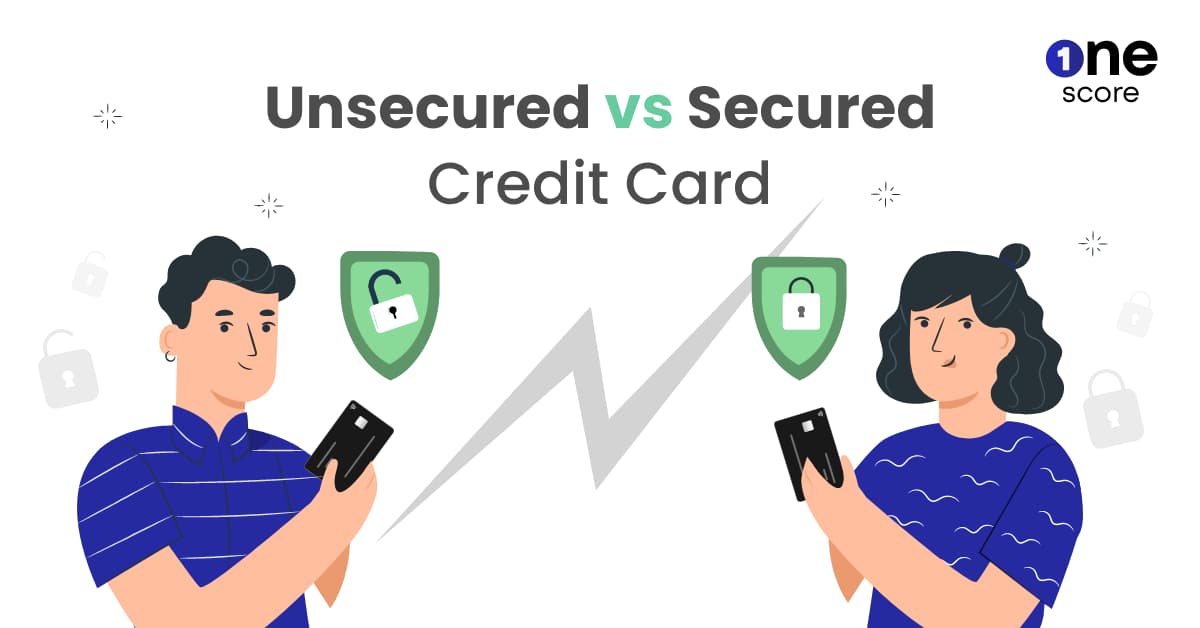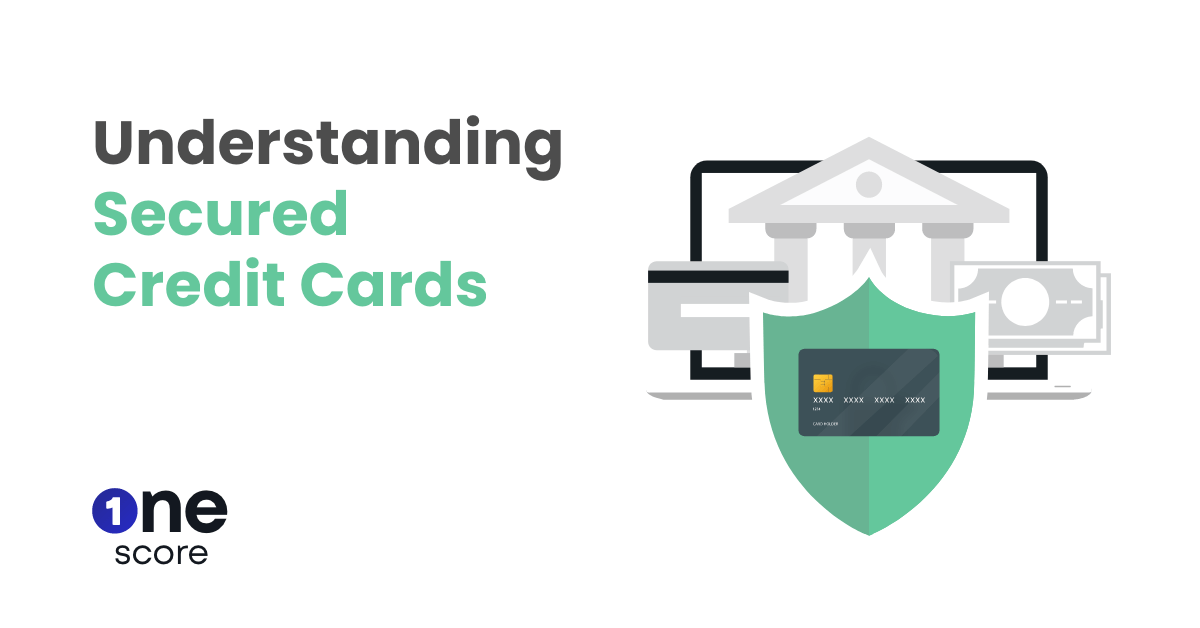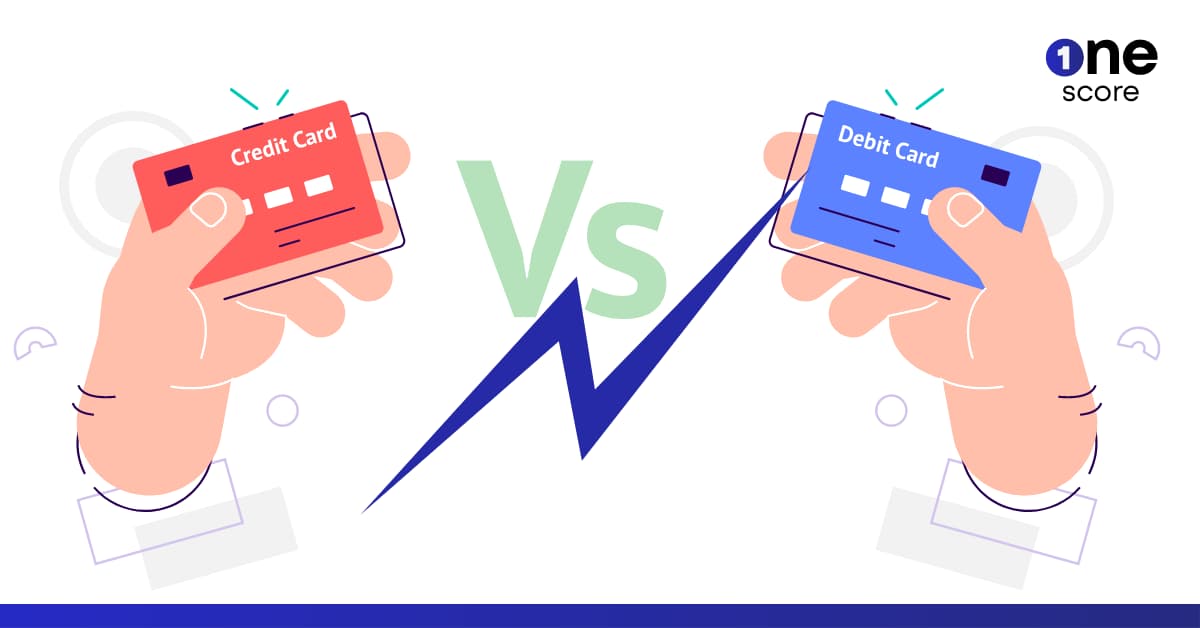Unsecured vs Secured credit cards - which should you get?
Both Unsecured and Secured credit cards have their pros and cons. Read on to find out which one you should opt for.

Unsecured vs Secured credit cards
Don’t have a credit score yet? Keen to improve/rebuild your credit score?
If the answer to either is Yes - and you do not wish to avail of a loan, a credit card can help in improving your credit score as well as building it from scratch.
During your search for the perfect credit card, you may have come across the terms, secured and unsecured credit cards. So what are these exactly?
What are unsecured credit cards?
Such credit cards do not require any collateral and are issued based on your creditworthiness. Unsecured cards tend to make up the bulk of credit card offerings from banks and are heavily promoted and advertised.
If you have a good credit score and credit history, you are eligible to apply for such cards, and final approval is at the bank’s discretion as per their terms and credit policy.
What are secured credit cards?
These credit cards are issued against some form of collateral, generally a Fixed Deposit (FD) held with the issuing bank or financial institution. They are not as common as unsecured credit cards, and not all banks may even offer such cards.
Secured credit cards are useful if you’re looking to build or improve your credit score and credit history. If your previous applications were declined for reasons varying from not having regular income/documentation or a good credit score, then you can try applying for a secured credit card.
Basic differences between secured and unsecured credit card
| Secured Credit Cards | Unsecured Credit Cards | |
|---|---|---|
| Issuance | Requires some collateral for approval | Issued based on your income and/or creditworthiness |
| Approval | Quicker approval as risk is covered by collateral | Approval can take longer due to risk checks |
| Limit | Usually up to 75-85% of the collateral | At the bank's discretion, and as per eligibility and income |
### Advantages of secured credit cards
1. Build your credit score: If you are New-To-Credit (NTC), meaning you haven’t availed of a loan or credit card before and don’t have a credit score, a secured credit card helps in building your credit score from scratch.
2. Rebuild/Improve your credit score: If you have a poor credit score, a secured credit card helps in being disciplined and in improving your credit score over time.
3. Earn Interest on your Fixed Deposit: Depending on the terms set out by the issuing bank, you can earn interest on your deposit.
4. Quick Approval: As you have provided collateral and are mostly already a customer of the bank, the risk aspect has been taken care of, and approval is usually quick with minimal documentation.
Disadvantages of secured credit cards
1. Requires some collateral: The primary requirement for a secured credit card is some collateral to be kept with the issuer - it could be an asset or a Fixed Deposit.
2. Funds are blocked: So long as you continue to use your secured credit card, you cannot use or withdraw any funds from the fixed deposit kept as collateral. This can create cash flow issues in an emergency.
3. Low credit limit: The credit limit on a secured credit card is usually up to 90% of the deposit kept as collateral, so is likely to be much lower than the limit offered on an unsecured credit card.
4. Can be highlighted in credit report: Depending on how the bank or financial institution chooses to report this to the bureau, your credit report may or may not indicate that you hold a secured credit card. Although subjective, this can be a cause for concern to a potential lender or if you are applying for a new (unsecured) credit card.
Advantages of unsecured credit cards
1. No collateral: You don’t need to provide any collateral or fixed deposit to get an unsecured credit card. The bank may check your credit history, financial strength and earning potential to determine your creditworthiness.
2. Better rewards programme/other benefits : While basic credit card features would usually be the same for both types of cards, unsecured credit cards may offer better value in terms of superior rewards programme, cashbacks, lounge access, other travel benefits and so on. This would vary across banks, and also the specific type of credit card issued to you.
3. Lower/flexible interest rate: Although risk is higher compared to secured credit cards, it is possible to get a lower interest rate at the bank’s discretion, depending on your overall creditworthiness.
4. Higher credit limit: As these cards are issued as per your creditworthiness and at times, your income, your credit limit could be much higher than that on a secured credit card. Some banks may also offer an increased limit based on your spends. A higher limit also allows you to keep your credit utilisation under control.
Disadvantages of an unsecured credit card
1. Requires a good credit score: Banks usually check your credit score and credit history and/or your income, before approving your credit card application. Having a good credit score is necessary in order to qualify.
2. Higher limit can lead to overspending: While a higher limit can offer you some comfort or momentary relief when needed, this can also lead to overspending and maxing out your credit limit. In the long term, it can result in financial issues for you and could also affect your credit score.
Should you get an unsecured or secured credit card?
A secured credit card is useful if you don’t have a credit score or if you wish to improve/repair your credit score and credit history.
If you already have a good credit score, opting for an unsecured credit card will be a better choice, especially one with no annual or joining fees, competitive forex rate, and which rewards you on ALL your spends.
Remember: Both types of credit cards contribute to your credit score and credit history, so you should make payments on time, avoid maxing your credit limit, and use your credit card responsibly to build, improve, and maintain your credit score.
Both secured and unsecured credit cards are products catering to specific requirements. Choosing either card depends on your spending habits and your creditworthiness at the time, which you can check for FREE from the OneScore app.
**Disclaimer: The information provided on this webpage does not, and is not intended to, constitute any kind of advice; instead, all the information available here is for general informational purposes only. FPL Consumer Services Private Limited and the author shall not be responsible for any direct/indirect/damages/loss incurred by the reader in making any decision based on the contents and information. Please consult your advisor before making any decision.


- OneScore , April 07, 2021

